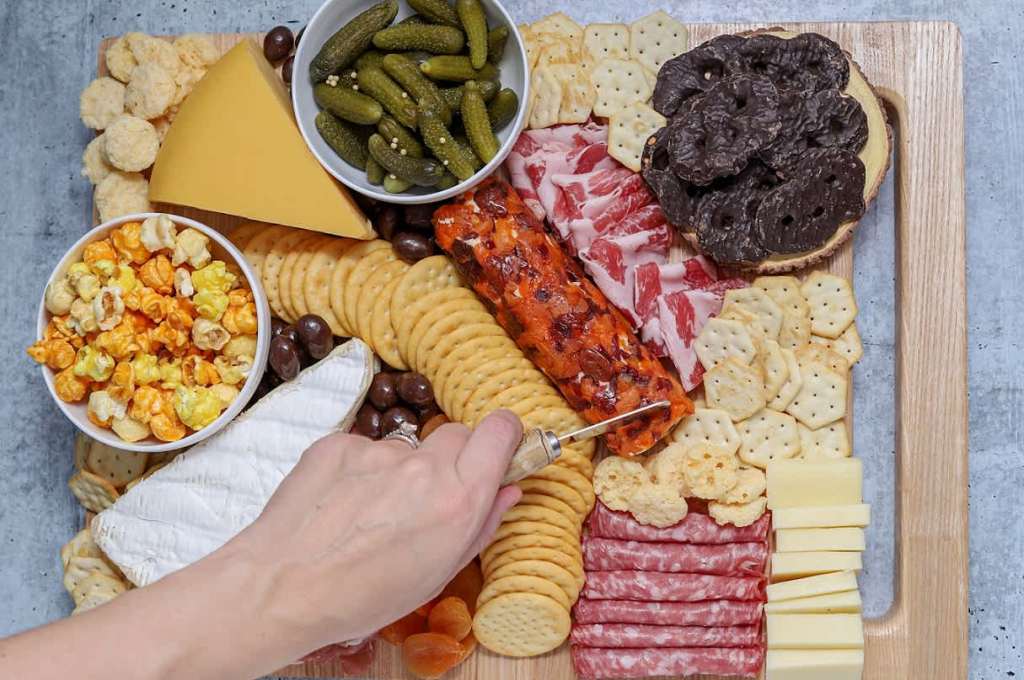Feed your Curiosity.
The Latch has partnered with Red Rock Deli to investigate why some people prefer savoury and some prefer sweet.
It’s no secret that some people would rather reach for a post-dinner cheese board than a slice of chocolate cake – but why is it that some just do not find sugar that appealing while others have a sweet tooth that would put Augustus Gloop to shame?
We all know there are five flavours: salt, sweet, sour, bitter, and umami. Our mouths can also detect spice, heat, and coolness. Most of what we eat is typically dominated by savoury, umami foods (think lunch and dinner) whereas breakfast and brunch is a bit more of a toss up (pancakes!) and in-between meal snacking is generally a sweet indulgence (fruit, biscuits, sweets). So while a balance between the poles of sweet and savoury is pretty easy to manage, some peoples dietary choices will skew in wildly different directions.
The science behind taste is complex and your preference for sweet over savoury comes down to way more than just what you’re craving at the moment. Genetics, diet, and upbringing all play a huge role in liking what you like and disliking what you don’t. Genetics also dictate exactly how much of anything you can actually taste at all.
Let us talk you through the three main reasons behind why some people like sweet while others crave savoury.
Upbringing and Emotion
Put simply, what you eat has memory, culture, history, and experience all wrapped up in it. Bite into a soft pork bun today and you might be instantly transported back to your grandma’s house as a child as she lifts the lid on some steaming nourishment. But even before you’re able to eat on your own, what you consumed as a baby, the chemicals passed to you through breastfeeding, and even the nutrients you received in the womb all shape and define your palate and what you like to eat later on.
Children are typically keen on salty and sweet foods and have an aversion to trying new things. Getting them to do so however can modify their food preferences later on in life.
A preference or craving for sweet foods can also indicate “emotional eating”. This means being stressed or sad and treating yourself to a whole tub of ice cream to make yourself feel better. Stress can play havoc with your perception of hunger and food and may result in not feeling hungry when you in fact are. This can lead to meal skipping and then needing a sugar hit to make up for the lack of calories.
Diet
Food cravings have been pretty well written off as not having anything to do with nutritional deficiencies. Feeling like you need chocolate is not because your body is actually after some vitamin or other and the fact that food cravings are usually for salty, sweet, or high fat foods is a pretty good indicator that they’re not health related.
There is however a condition called pica which is something children and pregnant women get where they want to eat non-food stuff like dirt because of nutrient deficiencies but if you don’t fall into one of those two categories it probably isn’t a big concern.
When you select salty or sweet foods, you reinforce to yourself what kind of foods you like. Studies have shown that people who cut back on carbs have a drastic reduction in cravings for carby foods. The same goes for people who cut back on fat. When you eat a food, particularly something high in sugar/salt/fat, your body releases serotonin and dopamine, a high you will unconsciously chase the next time you’re confronted with a food decision.
Genetics
It turns out that one of the biggest determiners of your taste is purely down to your genetic makeup. Studies have shown, for example, that 75% of a preference for sweetness is determined by your family.
Each of us has between 2,000 and 8,000 taste buds, with people in the lower end of this range being referred to as “non-tasters” while people at the very top are considered “supertasters”.
Supertasters are people who can taste way, way more than the rest of us. Because of this they are particularly sensitive to bitter foods and spicy foods and may be considered picky eaters. They also love salty flavours as these are good at masking bitterness or sourness.
At the other end you have those who struggle to taste things at all. They love spicy foods as well as sweets and will often add extra seasoning to their foods to taste them. They are more likely to drink and smoke because they are not put off by the strong flavours that others might be.
In the end
Your taste is influenced by a whole range of factors. What you like comes down to your parents, how you were raised, what your diet is like, and what your stress levels are doing. You can’t exactly point to one factor and say that this determines your palate. It’s due to a range of small things that all make up your preferences. We do know however that eating more of one thing works to reinforce your tastes and cause cravings for that flavour.
So, the best thing to do would be to keep trying new foods, new experiences, and leave yourself open to new worlds of flavour.







